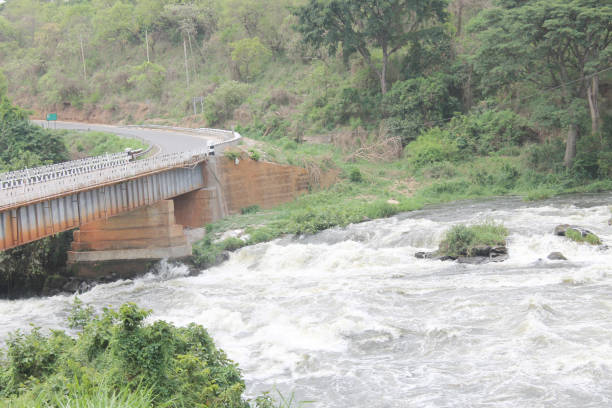Deputy Speaker Thomas Tayebwa has urged the Minister of State for Energy and Mineral Development, Hon. Phiona Nyamutoro, to seek a supplementary budget for the resettlement and compensation of individuals affected by the Karuma Hydropower Project.
The proposed budget to resettle 119 displaced persons is Shs28 billion, with Shs4.2 billion earmarked for compensation.
“We cannot afford to wait until the 2024/2025 budget; this is an urgent matter. Please present this case to the Cabinet. We’ve approved many supplementary budgets, and I don’t believe we would reject one aimed at compensating people who have suffered for so long,” Tayebwa stated. He made these remarks during a regional plenary session held at Kaunda Grounds, Gulu City, on Friday, 30 August 2024.
Tayebwa’s comments came after the Committee on Environment and Natural Resources presented a report on the petition by those affected by the Karuma Hydropower Plant project.
“Let’s support the minister, and within a month, we’ll ask for an update on the actions taken,” Tayebwa added.
Hon. Nyamutoro assured that the ministry is working closely with the National Environment Management Authority and Nwoya District Local Government to expedite the approvals needed to build resettlement homes.
“This issue is urgent, and the ministry is tirelessly working to ensure the resettlement of the affected persons. We seek Parliament’s support to prioritize this matter in the 2025/2026 budget allocation so that we can resolve it swiftly,” Nyamutoro emphasized.
She also mentioned that the ministry had conducted due diligence before purchasing land for the relocation and now holds the land title, which will be transferred to the affected individuals.
Committee Chair, Hon. Herbert Ariko, pointed out that the completion of the Resettlement Action Plan (RAP) has been delayed by 12 years, even though it was originally supposed to be completed within 15 weeks of the inspection in September 2012.
“The committee urges the Ministry of Energy and Mineral Development to expedite the implementation of the Resettlement Action Plan to ensure full acquisition of the project land,” Ariko said.
He highlighted that the RAP identified vulnerable groups, such as widows, widowers, the elderly, persons with disabilities, child-headed households, and people living with HIV, who are particularly challenged in relocating and therefore require physical resettlement.
The committee also recommended the formation of an Adhoc Joint Assessment Committee, consisting of Energy Ministry staff, local leaders, and affected persons, to periodically assess progress at the resettlement site.
“The committee has found significant gaps in the RAP’s implementation and the compensation process. Delays, unfair or inadequate compensation, and prolonged resettlement of vulnerable persons have negatively impacted their livelihoods,” Ariko added.
Kiryandongo District Woman MP, Hon. Hellen Kahunde, expressed concern over the plight of those who voluntarily chose resettlement, noting that they are the most affected and urging immediate action to resettle them.
“People are worried about losing their land because they do not possess land titles,” Kahunde noted.
The Karuma Hydropower Plant is a run-of-the-river facility located along the Nile River, with the project area spanning Kiryandongo and Oyam districts.
Construction of the plant began in December 2013 and was initially scheduled for completion in December 2018. However, delays have pushed the expected commissioning to September 25, 2024.

